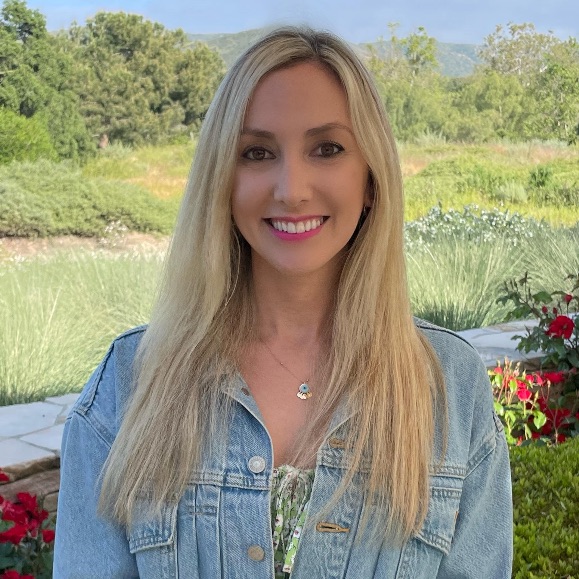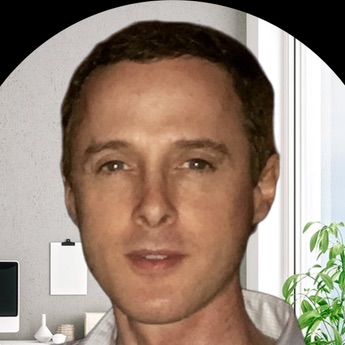Navigating Postpartum Depression Therapy Options in San Francisco
Navigating Postpartum Depression care in San Francisco can include in-person sessions in neighborhoods like Noe Valley, Mission, Pacific Heights, and the Richmond, where proximity to Muni and BART can make appointments easier with a stroller in tow. In-person therapy offers a calm, private space and the comfort of face-to-face connection, while virtual teletherapy provides flexible, home-based support ideal for nap schedules and late-night feeds. Individual therapy allows tailored approaches and pacing, and group therapy offers peer connection and shared strategies that reduce isolation. With MiResource, you can easily compare providers by location, specialization in Postpartum Depression, and therapeutic approach to find a fit that works for your routine and comfort.
MiResource’s directory helps you filter options across San Francisco’s diverse neighborhoods—from SoMa to the Sunset—considering commute times, parking, and transit access near key BART stations like 16th St Mission or Embarcadero. You can review providers who offer evening teletherapy, baby-friendly offices, or postpartum-focused group sessions, and compare by modalities, cultural focus, and experience with Postpartum Depression. Whether you prefer one-on-one support to build coping tools or a supportive group to connect with other new parents, MiResource makes it simple to explore, shortlist, and schedule care. Feel confident choosing a trusted provider that fits your life in San Francisco.
Organizations that offer Supportive Services for Postpartum Depression in San Francisco
San Francisco offers several local programs for postpartum depression support, including the San Francisco Department of Public Health’s Maternal, Child & Adolescent Health and Behavioral Health Services, which connect families to screening, therapy, and sliding-scale care near Civic Center and throughout city clinics. UCSF’s Perinatal Wellness Program at Mission Bay and Parnassus provides specialized perinatal mental health assessment, support groups, and short-term therapy. Zuckerberg San Francisco General’s Women’s Health services in the Potrero/Mission area offer integrated care and referrals for postpartum mood concerns. You can also dial 211 to find nearby counseling, home-visiting, and parenting resources across neighborhoods from the Sunset to the Bayview. Use MiResource to find licensed Postpartum Depression therapists in San Francisco.
Community organizations and advocacy groups provide additional help: NAMI San Francisco hosts education, peer programs, and family support near SoMa and throughout the city, with guidance on navigating care and crisis resources. Homeless Prenatal Program in the Mission District offers case management, mental health counseling, and support groups for perinatal parents, including low- and no-cost services. Postpartum Support International lists San Francisco–area coordinators, virtual and local support groups, and a helpline for immediate guidance. Many services provide sliding-scale options, language access, and referrals for urgent care. You can also use MiResource to match with vetted, licensed therapists who specialize in Postpartum Depression in San Francisco.
Emergency Care Services for Postpartum Depression in San Francisco
If you’re in immediate danger or thinking of harming yourself or your baby, call 911 or go to the nearest hospital emergency department (e.g., Zuckerberg San Francisco General Hospital) right away. For urgent crisis support in San Francisco, call San Francisco Suicide Prevention at 415-781-0500 and the San Francisco Behavioral Health Access Line (24/7) at 415-255-3737 for mobile crisis response and same-day care options. You can also call or text 988 (Suicide & Crisis Lifeline), text HOME to 741741 (Crisis Text Line), or use the National Maternal Mental Health Hotline at 1-833-9-HELP4MOMS (1-833-943-5746); Postpartum Support International offers help at 1-800-944-4773 (text 800-944-4773). Learn more and find local services at https://sf.gov/ and https://988lifeline.org.
The Essentials of Postpartum Depression
Postpartum Depression is a common, treatable mood disorder that can occur after childbirth, marked by persistent sadness, anxiety, irritability, and loss of interest in activities or bonding challenges with the baby. Unlike the short-lived “baby blues,” Postpartum Depression lasts longer and can interfere with daily life and relationships. Clinical definitions from the American Psychiatric Association, the Centers for Disease Control and Prevention, and the National Institute of Mental Health describe Postpartum Depression as a depressive episode that emerges during pregnancy or within the first year after delivery, with symptoms such as sleep changes, appetite shifts, feelings of worthlessness, and sometimes thoughts of self-harm. Recognizing these signs early matters because timely support—therapy, social connection, and when appropriate, medication—can significantly improve outcomes for both parent and child (American Psychiatric Association; CDC; NIMH). If you’re in San Francisco, know that diverse families experience Postpartum Depression, and reaching out for help is a strong and hopeful first step.
The general characteristics of Postpartum Depression include emotional lows that don’t lift, overwhelming worry, trouble concentrating, and feeling disconnected—from yourself, your community, or your baby. It can affect anyone, regardless of background, birth plan, or support system, and stressors like high cost of living, limited leave, or isolation in a busy city like San Francisco can add to the strain. Understanding Postpartum Depression empowers parents and partners to notice patterns, start conversations, and access effective, evidence-based care. With compassionate support and professional guidance, most people recover and build confidence in their new routines (American Psychiatric Association; CDC; NIMH). You are not alone, and help is available close to home.
Recognizing the Signs and Symptoms of Postpartum Depression
Recognizing the Signs and Symptoms of Postpartum Depression can help you take the next step toward feeling better. The list below highlights the most common signs and symptoms of Postpartum Depression so you can notice them early and get support in San Francisco if you need it.
- Feeling sad, empty, or tearful most days, even when things “should” feel okay
- Losing interest in activities you used to enjoy, or feeling disconnected from friends, family, or your baby
- Intense worry, racing thoughts, or panic that’s hard to turn off
- Irritability or anger that feels out of character and hard to control
- Trouble sleeping even when the baby sleeps, or sleeping much more than usual
- Changes in appetite—eating far less or more than you typically do
- Intrusive thoughts (unwanted, scary thoughts) or feelings of guilt or shame, including worries about not being a “good enough” parent
If you recognize several of these signs, consider reaching out to a San Francisco mental health professional for support.
Exploring the Underlying Causes of Postpartum Depression
Postpartum Depression often develops from a mix of influences rather than a single cause, and understanding this can reduce stigma and encourage compassion. For new parents in San Francisco, it helps to know that biological shifts, personal history, and life circumstances can interact in complex ways. Recognizing these interconnected factors can make it easier to seek support and find the right care.
- Biological: rapid hormone changes after birth; thyroid shifts affecting mood and energy; severe sleep loss disrupting brain chemistry.
- Psychological: past depression or anxiety; high self-expectations or perfectionism; distress from a difficult birth or breastfeeding challenges.
- Environmental: limited support or social isolation (even in a busy city like San Francisco); financial or housing stress; tension or conflict with a partner or family.
The Impact of Postpartum Depression on Daily Life
Postpartum Depression can touch nearly every part of daily life, making even routine tasks feel heavy and overwhelming. In San Francisco, where life moves fast and expectations can be high, these changes may feel especially isolating—but you’re not alone. Understanding how Postpartum Depression shows up day to day can help you recognize what’s happening and take steps toward support. Small, compassionate adjustments and community care can make a real difference.
- Emotional well-being: frequent sadness, irritability, guilt, or feeling “numb” instead of joyful
- Relationships: strain with partners, family, and friends; feeling misunderstood or pulling away
- Work or school performance: trouble focusing, reduced motivation, and increased absenteeism
- Parenting and bonding: difficulty connecting with the baby, anxiety around caregiving tasks
- Daily routines: disrupted sleep, low energy, and challenges keeping up with meals, errands, or self-care
- Physical health: headaches, body tension, appetite changes, and exhaustion that rest doesn’t fix
- Social life and community: avoiding activities, feeling overwhelmed by outings in San Francisco, or losing interest in things you once enjoyed
Evidence-Based Treatments for Postpartum Depression
Facing Postpartum Depression can feel overwhelming, but there are proven, evidence-based treatments that can help you feel better and reclaim your quality of life. Many people in San Francisco find that the right support leads to steady improvement in mood, energy, and daily functioning. You are not alone—effective care is available, and reaching out is a strong first step. With guidance from trained professionals, you can create a plan that fits your needs and goals.
- Cognitive Behavioral Therapy (CBT): A structured talk therapy that helps you notice unhelpful thoughts and build practical coping skills to lift mood and reduce anxiety.
- Interpersonal Psychotherapy (IPT): Focuses on relationships, role changes, and support after birth to ease symptoms and improve connection with loved ones.
- Antidepressant medications (often SSRIs): Medications that balance brain chemicals to reduce depression; many are compatible with breastfeeding—discuss options with a San Francisco prescriber.
- Support groups (local and virtual): Peer-led or clinician-led groups in San Francisco and online that reduce isolation and provide encouragement and tips from others who’ve been there.
- Lifestyle interventions: Gentle movement, regular sleep routines, nourishing meals, sunlight, and mindfulness practices that support recovery alongside therapy or medication.
- Psychiatry and care coordination: A San Francisco psychiatrist or collaborative care team can tailor treatment, monitor progress, and adjust medications and therapy for best results.
Things People Ask About Postpartum Depression
- What are some common myths about Postpartum Depression that aren’t true?
Myth: Postpartum Depression is just the “baby blues” and will go away on its own; truth: Postpartum Depression is a medical condition that lasts longer than two weeks and usually needs support or treatment. Myth: Having Postpartum Depression means you’re a bad parent; truth: it’s a common, treatable health issue caused by biological and life changes, and seeking help shows strength, not failure. Myth: Postpartum Depression only affects new mothers right after birth; truth: it can affect any birthing person or partner and can start during pregnancy or up to a year postpartum. If you’re in San Francisco, know that many local clinicians and support groups understand Postpartum Depression and can help you recover.
- How do I talk to friends or family about my Postpartum Depression without feeling judged?
Choose a calm, interruption-free time to talk and lead with “I” statements like “I’m dealing with Postpartum Depression and I need support, not fixes right now.” Set clear boundaries up front (e.g., “Please just listen,” or “I’m not ready for advice or comparisons”) and decide on an exit phrase if the conversation feels judgmental. Share specific needs—childcare for a nap, a weekly check-in, or help with meals—and send a short text beforehand to set expectations. Provide trusted resources to guide them: UCSF Perinatal Wellness Program, Postpartum Support International Bay Area (warmline: 1-800-944-4773), and the San Francisco Department of Public Health Family Health Resource line (call 628-217-6608); in crisis, dial or text 988. Remember, in San Francisco you’re not alone—choose one ally to start, then build out your circle as you feel safer.
- Can Postpartum Depression get better on its own without professional help?
Some people notice symptoms ease over weeks to months with sleep, social support, and reduced stress, but Postpartum Depression can also linger or worsen, affecting bonding and daily life. Evidence-based care—therapy, medication, and support groups—usually speeds recovery and lowers the risk of relapse, leading to more stable, lasting improvement. In San Francisco, you can access perinatal therapists, community programs, and virtual options tailored to diverse families and schedules. If you’re unsure where to start, talk to your OB/pediatrician or connect with local SF maternal mental health resources to find timely help.
- What should I expect during my first Postpartum Depression therapy session?
In your first Postpartum Depression therapy session in San Francisco, your therapist will start with warm introductions, explain confidentiality, and invite you to share what brings you in. You’ll talk about your current symptoms, birth experience, support system, and daily stresses, with space to go at your own pace. Together, you’ll review relevant background (medical history, sleep, feeding, mood changes) and set initial, manageable goals for relief and support. You’ll also discuss practical next steps, like session frequency and local Bay Area resources that can help between visits.













